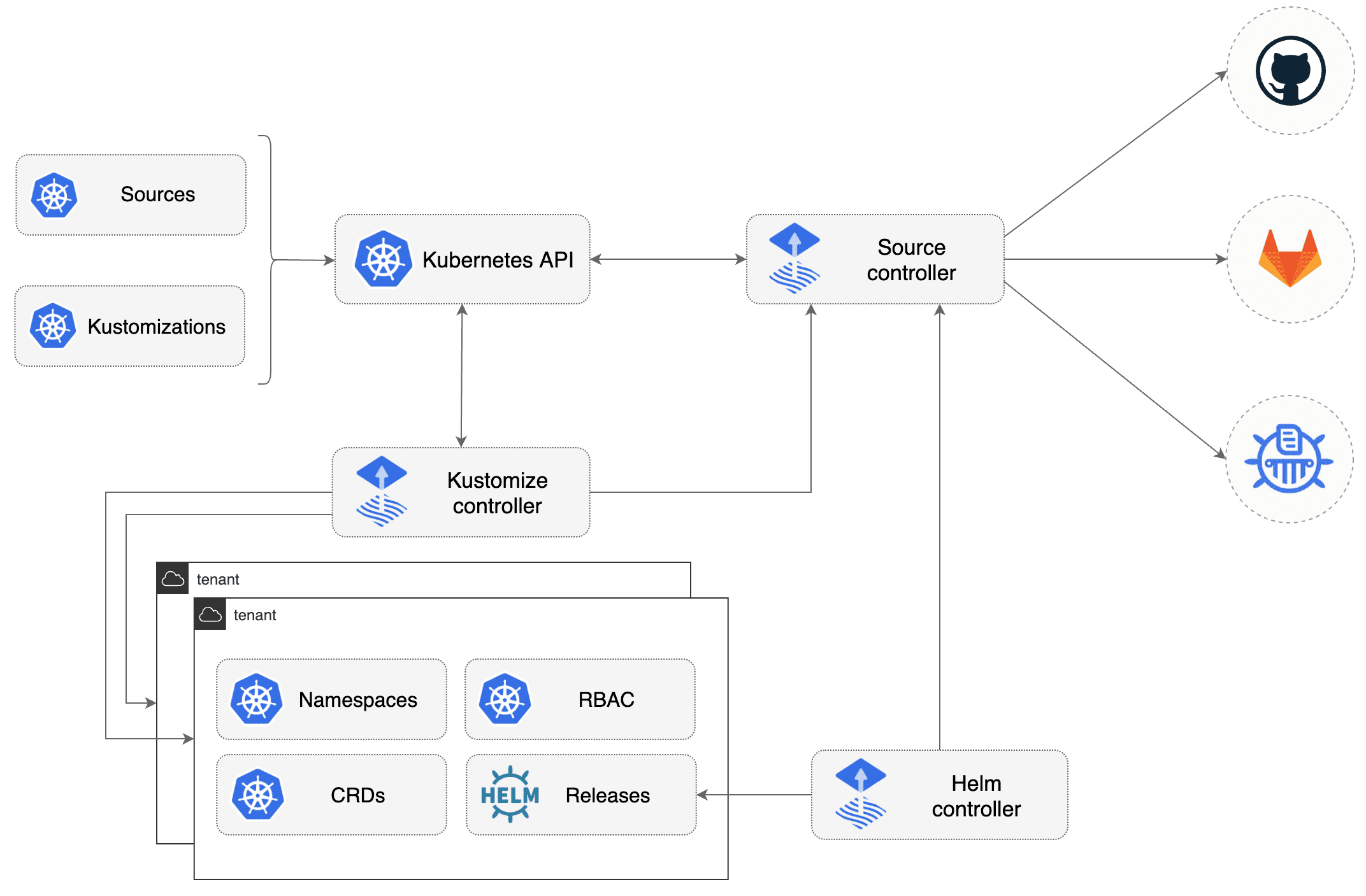Flux is a tool for keeping Kubernetes clusters in sync with sources of configuration (like Git repositories), and automating updates to configuration when there is new code to deploy.
Flux version 2 ("v2") is built from the ground up to use Kubernetes' API extension system, and to integrate with Prometheus and other core components of the Kubernetes ecosystem. In version 2, Flux supports multi-tenancy and support for syncing an arbitrary number of Git repositories, among other long-requested features.
Flux v2 is constructed with the GitOps Toolkit, a set of composable APIs and specialized tools for building Continuous Delivery on top of Kubernetes.
With Homebrew:
brew install fluxcd/tap/fluxWith Bash:
curl -s https://toolkit.fluxcd.io/install.sh | sudo bash
# enable completions in ~/.bash_profile
. <(flux completion bash)Arch Linux (AUR) packages:
- flux-bin: install the latest stable version using a pre-build binary (recommended)
- flux-go: build the latest stable version from source code
- flux-scm: build the latest
(unstable) version from source code from our git
mainbranch
Binaries for macOS, Windows and Linux AMD64/ARM are available to download on the release page.
Verify that your cluster satisfies the prerequisites with:
flux check --preTo get started with Flux, start browsing the documentation or get started with one of the following guides:
- Get started with Flux (deep dive)
- Installation
- Manage Helm Releases
- Setup Notifications
- Setup Webhook Receivers
The GitOps Toolkit is the set of APIs and controllers that make up the runtime for Flux v2. The APIs comprise Kubernetes custom resources, which can be created and updated by a cluster user, or by other automation tooling.
You can use the toolkit to extend Flux, or to build your own systems for continuous delivery -- see the developer guides.
The Flux project is always looking for new contributors and there are a multitude of ways to get involved. Depending on what you want to do, some of the following bits might be your first steps:
- Join our upcoming dev meetings (meeting access and agenda)
- Talk to us in the #flux channel on CNCF Slack
- Ask questions and propose features on our GH Discussions page
- And if you are completely new to Flux and the GitOps Toolkit, take a look at our Get Started guide and give us feedback
- To be part of the conversation about Flux's development, join the flux-dev mailing list.
- Check out how to contribute to the project
Check out our events calendar, both with upcoming talks you can attend or past events videos you can watch.
We look forward to seeing you with us!


